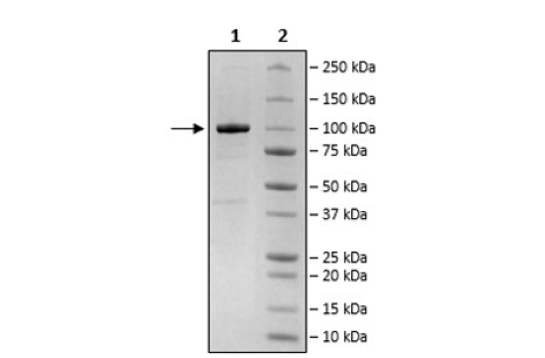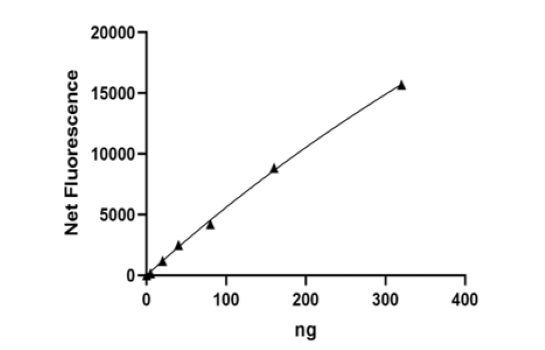USP13, His-Tag, FLAG-Tag Recombinant
Recombinant human USP13 (ubiquitin carboxyl-terminal hydrolase 13), encompassing amino acids 2-863(end). This construct contains an N-terminal His-tag (6xHis) and a C-terminal FLAG-tag. This protein was affinity purified.
≥90%
Aqueous buffer solution.
45 mM Tris-HCl, pH 8.0, 300 mM NaCl, 2.48 mM KCl, 0.045% Tween-20, 10% glycerol, 100 µg/ml FLAG peptide
5 pmol/min/µg
USP13 (ubiquitin carboxyl-terminal hydrolase 13), also known as isopeptidase T 3 (ISOT-3) is a DUB (deubiquitination) enzyme. It participates in multiple crucial cellular processes, such as autophagy, DNA damage response, ERAD (endoplasmic reticulum-associated degradation) by deubiquitinating proteins involved in those functions. It also plays roles in diseases such as cancer and neurodegeneration. It can play both a suppressor and activator role in tumorigenesis. For instance, low levels of USP13 correlate with low levels of PTEN (phosphatase and tensin homolog), as UPS13 stabilizes the protein. A deeper understanding of all its cellular roles and how to best target its function in a specific context may prove beneficial in cancer therapy.



